Health & Safety Essentials: Protecting Yourself and the Environment While Exploring Punta Cana
Understanding Punta Cana’s Natural Environment

Health & Safety Essentials: Protecting Yourself and the Environment While Exploring Punta Cana
Welcome to Punta Cana, a tropical paradise where lush greenery kisses turquoise waters, creating a haven for nature enthusiasts and adventure seekers alike. Understanding the natural environment here is not just an invitation to explore, but a call to preserve its unique beauty for generations to come.
1. Biodiversity in Punta Cana
Punta Cana is a tapestry of vibrant ecosystems, each teeming with life. From the dense mangroves and sprawling coral reefs to the whispering palms and exotic wildlife, this region is a testament to nature’s grandeur. The biodiversity of Punta Cana is not only aesthetic but ecologically significant, playing a crucial role in maintaining the balance of its natural habitats.
Among the native flora, you’ll encounter the iconic Hispaniolan pine and the majestic ceiba tree, both integral to the local ecosystem. The fauna is equally remarkable, with the island being home to the critically endangered Ridgway’s hawk and the endemic Hispaniolan solenodon. These species, among others, contribute to the intricate web of life that sustains the region.
For a deeper dive into the biodiversity, consider visiting the Indigenous Eyes Ecological Park, where you can experience these species in their natural habitat. This 1,500-acre private reserve is a sanctuary for numerous plant and animal species, offering a glimpse into the rich tapestry of Punta Cana’s natural world.
2. Climate and Weather Patterns
Understanding Punta Cana’s climate is key to making the most of your visit. Nestled in the tropics, the region enjoys a warm, tropical climate year-round, with temperatures hovering between 77°F to 88°F (25°C to 31°C). The dry season, from December to April, is characterized by sunny skies and pleasant breezes, making it the peak tourist season.
However, the rainy season, spanning May to November, brings more rainfall and occasional tropical storms. Despite this, the rains are often brief and followed by sunshine, maintaining a delightful balance. Being prepared with appropriate clothing and gear can enhance your experience, ensuring you remain comfortable and ready for any weather changes.
3. Conservation Efforts
Punta Cana is not just a destination; it’s a living, breathing ecosystem deserving of our care. Numerous conservation projects are underway, aimed at protecting the natural beauty and biodiversity of this region. One standout initiative is the Puntacana Ecological Foundation, which focuses on research, conservation, and sustainable development.
This foundation is instrumental in marine conservation efforts, particularly in the preservation of coral reefs and the protection of endangered species. Their work in reforestation and community education plays a pivotal role in promoting a sustainable future for Punta Cana.
Visitors can contribute by participating in eco-volunteering programs or simply by adopting eco-friendly travel practices. By supporting these efforts, you not only help preserve the environment but also enrich your travel experience, knowing you’re a part of a global movement towards sustainability.
Personal Health Precautions
Exploring the vibrant and tropical paradise of Punta Cana is an adventure of a lifetime, but it’s crucial to prioritize your health and safety to ensure your trip is as enjoyable as possible. Preparing in advance with essential health precautions can mean the difference between a dream vacation and a travel nightmare.
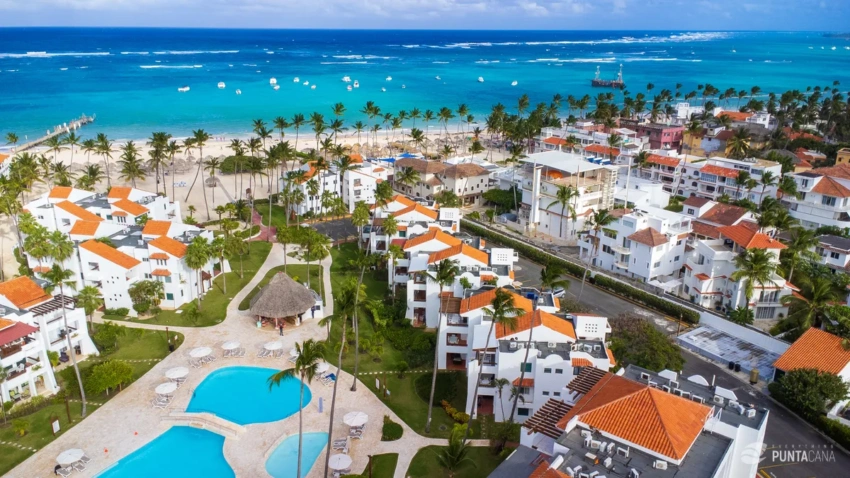
Punta Cana
1. Vaccinations and Health Checks
Before jetting off to Punta Cana, it’s critical to check in with your healthcare provider about recommended vaccinations. The Centers for Disease Control and Prevention (CDC) suggests that travelers should be up-to-date on routine vaccines such as measles, mumps, rubella (MMR), and diphtheria-tetanus-pertussis (DTP). Additionally, vaccines like hepatitis A, hepatitis B, typhoid, and rabies (for those who might be at risk) are specifically recommended for travelers heading to the Dominican Republic.
It’s wise to schedule a health check-up several weeks prior to your departure. This gives your body time to develop immunity after receiving any vaccines. Remember to bring a copy of your vaccination records, just in case local authorities or healthcare providers request it.
2. Dealing with Tropical Diseases
Tropical diseases can be a concern in Punta Cana, with the most common being dengue fever, chikungunya, and Zika virus, all transmitted by mosquitoes. To protect yourself, use mosquito repellent containing DEET, wear long sleeves and pants, and sleep under a mosquito net if necessary.
Consider carrying a travel health kit that includes insect repellent, hand sanitizer, and basic first-aid supplies. Staying informed about the symptoms of these diseases and seeking medical attention if you experience any symptoms like fever, rash, or joint pain can be crucial for early treatment.
3. Sun and Heat Protection
The stunning beaches and sunny weather of Punta Cana can sometimes be deceptive, as the intense tropical sun can lead to serious sunburn and heat-related illnesses. To protect yourself, apply a broad-spectrum sunscreen with at least SPF 30 regularly, and don’t forget often-missed spots like ears, feet, and the back of your neck.
Staying hydrated is vital. Carry a reusable water bottle and drink water frequently, even if you don’t feel thirsty. Wearing a wide-brimmed hat and UV-protection sunglasses also helps shield you from harmful rays. If you’re planning to be outdoors for extended periods, seek shade during peak sun hours, typically between 10 a.m. and 4 p.m.
Our Best Tours in Punta Cana
Maximize your Punta Cana experience with our top-rated excursions, specially curated for thrill-seekers and relaxation enthusiasts alike. Whether you’re exploring lush rainforests or lounging on white-sand beaches, our tours ensure a safe and unforgettable adventure.
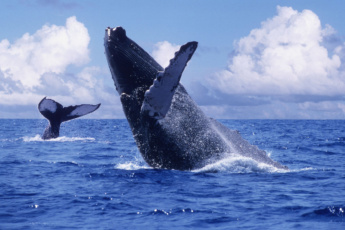
The Best Samaná Whale Watching Tour 2026 - Humpback Whales, Cayo Levantado, El Limon Waterfall
from $149 Read more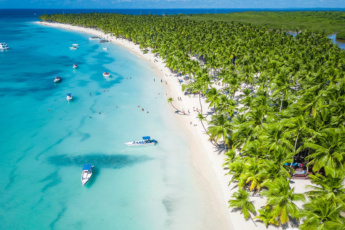
Saona Island Excursion - Caribbean Paradise
from $75 Read moreSafety Tips for Outdoor Adventures
Punta Cana is a paradise for thrill-seekers and nature lovers, offering a plethora of outdoor adventures that promise excitement and unforgettable experiences. However, the key to enjoying these activities to the fullest is ensuring safety and preparedness. By taking the right precautions, you can enjoy everything from crystal-clear waters to lush hiking trails without a hitch.
1. Water Safety
Whether you’re a seasoned snorkeler or a first-time swimmer, Punta Cana’s turquoise waters beckon with their beauty and mystery. However, water safety is paramount to ensuring a delightful experience.
- Choose the Right Spot: Not all beaches are created equal. Opt for beaches with lifeguards and clear signage of water conditions. Macao Beach is popular for surfers, while Bavaro Beach is ideal for swimmers.
- Check the Weather: Sudden weather changes can affect water conditions. Always check the weather forecast and ocean currents before heading out.
- Use Quality Gear: Whether renting or bringing your own, ensure that your snorkeling or diving gear is in top condition. A well-fitting mask and reliable fins make all the difference.
- Stay Hydrated and Sun-Protected: The sun can be relentless, and dehydration sneaks up fast. Drink plenty of water and use reef-safe sunscreen to protect both your skin and the marine environment.
2. Navigating Hiking Trails
Exploring Punta Cana’s lush hiking trails is a treat for the senses, offering breathtaking views and diverse wildlife. But before you lace up your hiking boots, consider these tips for a safe adventure.
- Plan Your Route: Familiarize yourself with the trail map and choose a path that matches your fitness level. The Indigenous Eyes Ecological Park offers a range of trails for all abilities.
- Pack Essentials: Always carry a backpack with water, snacks, a first-aid kit, and a fully charged phone. Insect repellent is a must in tropical terrains.
- Hike with a Buddy or Guide: Solo hiking can be risky. If possible, hike with a friend or hire a local guide who knows the trails and can share insights into the flora and fauna.
- Dress Appropriately: Lightweight, breathable clothing and sturdy shoes are essential. A hat and sunglasses will protect you from the sun, while a rain poncho may come in handy.
3. Adventure Sports Safety
For those who crave an adrenaline rush, Punta Cana offers an array of adventure sports like zip-lining and ATV rides. While these activities are thrilling, they also come with inherent risks.
- Choose Reputable Operators: Always book your adventure sports with certified operators who prioritize safety. Research reviews and verify credentials before making reservations.
- Use Proper Gear: Ensure that all safety equipment, such as helmets and harnesses, is provided and properly fitted. If something feels off, speak up and ask for adjustments.
- Follow Instructions: Listen carefully to safety briefings and follow all instructions. These guidelines are designed to protect you and enhance your experience.
- Know Your Limits: Adventure sports can be physically demanding. Be honest about your fitness level and don’t push beyond your comfort zone.
By keeping these safety tips in mind, you can explore Punta Cana’s great outdoors with confidence and peace of mind. Remember, adventure is about having fun and creating memories, so prioritize your safety and make every moment count!
Eco-Friendly Travel Practices
Embarking on a journey to Punta Cana doesn’t just mean immersing yourself in its breathtaking beauty but also taking responsibility for preserving it. By adopting eco-friendly travel practices, you can ensure that future generations will also be able to enjoy this paradise.
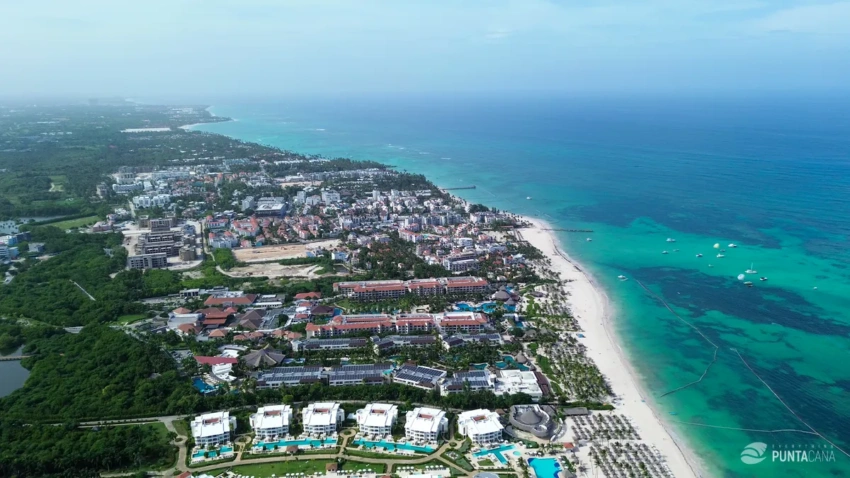
Aerial view of Punta Cana
1. Sustainable Accommodation Choices
Choosing a place to stay is one of the first decisions you’ll make when planning your trip. Opting for sustainable accommodation not only enhances your experience but also supports local conservation initiatives. Consider staying at eco-friendly resorts that implement water conservation, waste management, and energy-efficient practices. Many of these accommodations are certified by organizations that ensure they meet environmental standards.
Some resorts use solar power, recycle waste, and even offer educational tours to guests about local ecology and sustainability. By staying in these types of accommodations, you’re directly contributing to the conservation of Punta Cana’s stunning landscapes.
2. Reducing Plastic Use
Plastic pollution is a global issue, and being mindful of your plastic consumption is vital during your travels. Start by carrying a reusable water bottle and refill it at safe water stations. Avoid single-use plastic bags by bringing your own tote bags for shopping. Many local markets in Punta Cana offer beautiful handmade bags that you can use during your stay and beyond.
Consider refusing plastic straws and cutlery when dining out. Instead, carry a set of reusable utensils with you. By making these small changes, you can significantly reduce your plastic footprint and contribute to a cleaner environment.
3. Supporting Local Communities
Engaging with and supporting local communities can enrich your travel experience while providing economic benefits to the region. Explore local markets and purchase handmade crafts and products, ensuring that your money directly benefits the artisans. Participate in community tours that offer insights into the local way of life and cultural heritage.
Volunteering opportunities are also available, ranging from beach clean-ups to conservation projects. These activities not only allow you to give back but also offer a deeper connection to Punta Cana and its people.
Our Best Tours in Punta Cana
For those looking to explore Punta Cana while supporting eco-friendly practices, consider booking tours that emphasize sustainability and community involvement. Our carefully curated excursions provide an opportunity to enjoy the natural beauty of the area while promoting environmental and cultural preservation.
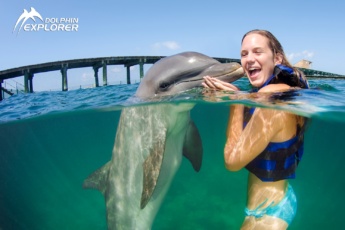
Swimming with Dolphins in Punta Cana - Top Adventure 2026 (50 minutes)
from $155 Read more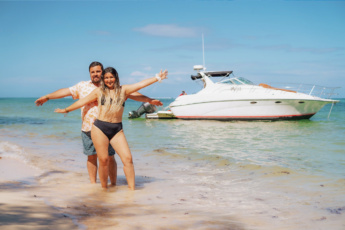
Punta Cana Private Boat Trip at the Best Price - 3-Hour Exclusive Tour with Snorkeling (from Jellyfish to Cabeza de Toro)
from $590 Read moreBy committing to eco-friendly travel practices, you play a crucial role in protecting Punta Cana’s vibrant ecosystems. Your mindful actions today pave the way for a healthier environment tomorrow, ensuring that the enchanting allure of this tropical haven remains intact for all to cherish.
Emergency Preparedness
When exploring a tropical paradise like Punta Cana, it’s crucial to be prepared for any unforeseen circumstances. By understanding local emergency protocols, natural disaster preparedness, and the importance of insurance, you can ensure a safe and worry-free trip.
1. Local Emergency Contacts
If an emergency arises, having quick access to the right contact numbers can make all the difference. In Punta Cana, it’s essential to keep a list of emergency contacts handy, including local police, medical facilities, and your country’s embassy or consulate.
- Police: Dial 911 for immediate assistance in case of any criminal incident or emergency.
- Medical Services: The Coral Medical Center and Hospiten Bavaro are two reputable facilities in the area. Always have the contact details of the nearest hospital or clinic.
- Embassy/Consulate: Knowing the location and contact information of your country’s embassy or consulate can be invaluable in case of lost passports or legal issues.
The provided information is for informational purposes only and may not be up-to-date. Please verify with official sources before using it.
2. Natural Disaster Preparedness
While Punta Cana is renowned for its beautiful weather, being prepared for natural disasters is a wise precaution. Hurricanes, although infrequent, can occur during the hurricane season, which runs from June to November.
- Stay Informed: Keep an eye on local weather updates from reliable sources like the National Hurricane Center or local news channels.
- Have an Evacuation Plan: Know the evacuation routes and procedures in your accommodation. Familiarize yourself with the location of emergency shelters.
- Emergency Kit: Prepare a basic emergency kit that includes essentials like water, non-perishable food, a flashlight, batteries, and a first aid kit.
3. Health and Travel Insurance
No one plans for accidents, but they can happen. Having adequate health and travel insurance is a must when visiting Punta Cana. This can provide peace of mind and financial protection in the event of unexpected health issues or travel disruptions.
- Health Insurance: Ensure your health insurance covers international medical care, including hospital visits and emergency treatments.
- Travel Insurance: Opt for comprehensive travel insurance that covers trip cancellations, lost luggage, and other travel-related mishaps.
- Keep Documents Handy: Always carry a copy of your insurance policy and emergency contact numbers in case you need to make a claim.
By taking these precautions, you can protect yourself and enjoy the vibrant culture and stunning landscapes of Punta Cana with peace of mind. Remember, a little preparation goes a long way in ensuring a smooth and enjoyable adventure.
Frequently Asked Questions
What are some essential items to pack for a safe trip to Punta Cana?
When visiting Punta Cana, it’s important to pack sunscreen with a high SPF, insect repellent, a reusable water bottle, and a basic first aid kit. Don’t forget to bring light, breathable clothing and a hat to protect yourself from the sun.
How can I protect myself from mosquito-borne diseases in Punta Cana?
To protect yourself from mosquito-borne diseases, use a DEET-based insect repellent, wear long sleeves and pants during dawn and dusk, and consider using a mosquito net if sleeping in open-air accommodations. Staying in places with screens or air conditioning can also reduce your exposure.
Are there any health considerations I should be aware of before traveling to Punta Cana?
Before traveling to Punta Cana, check with your healthcare provider about necessary vaccinations, such as hepatitis A and typhoid. It’s also good to know that while tap water is not safe to drink, bottled water is widely available.
What should I do if I have a medical emergency in Punta Cana?
In case of a medical emergency, contact the local authorities or head to the nearest hospital. It’s advisable to have travel insurance that covers medical emergencies. Keep a list of emergency contacts with you at all times.
How can I minimize my environmental impact while exploring Punta Cana?
To minimize your environmental impact, use biodegradable sunscreen, dispose of waste properly, and participate in eco-friendly tours. Avoid activities that harm wildlife or natural habitats.
Is it safe to swim at the beaches in Punta Cana?
Most beaches in Punta Cana are safe for swimming, but it’s important to pay attention to local warnings about strong currents or jellyfish. Always swim in designated areas and follow lifeguard instructions.
What are the local customs or laws I should be aware of to ensure a safe visit?
Respect local customs by dressing modestly when visiting religious sites and asking for permission before taking photos of locals. Be aware that drug use is illegal and penalties can be severe. Always carry a copy of your passport for identification.
How can I stay safe when exploring Punta Cana's natural attractions?
When exploring natural attractions, stick to marked trails, use a reputable guide for remote areas, and inform someone of your plans. Carry sufficient water and snacks, and be mindful of the weather conditions.
Are there any specific travel advisories for Punta Cana that I should be aware of?
Travel advisories can change, so it’s important to check the latest information from reliable sources such as the State Department. These advisories provide updates on health, safety, and security issues that might affect your trip.
Always consult official travel advisories before your trip for the most current information.
